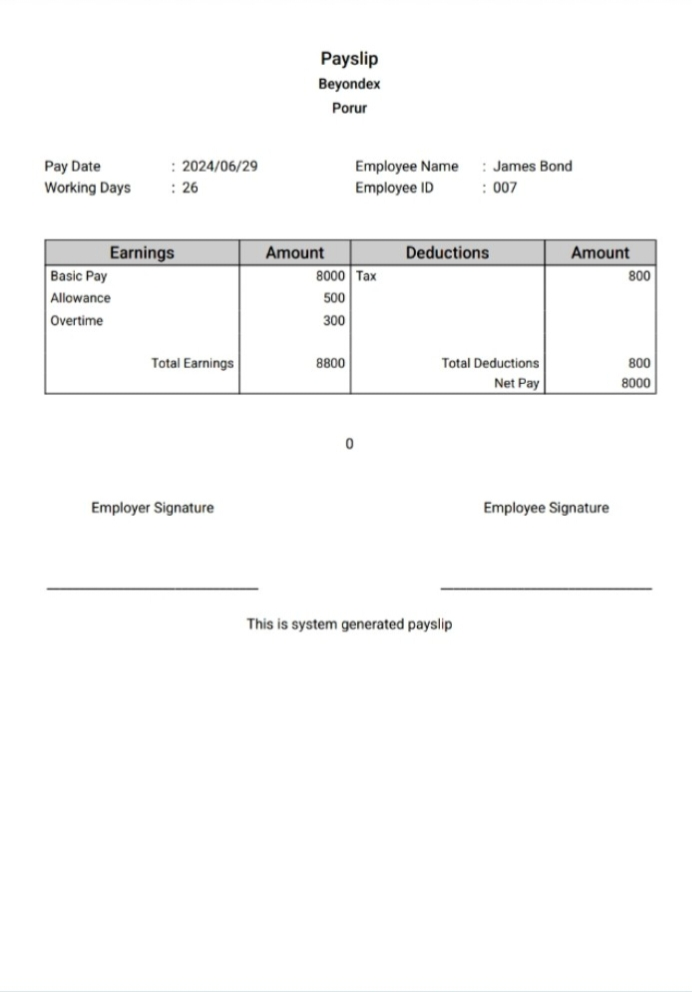Attendance Task Manager (ATM)
About ATM
Attendance management is a system that tracks employee hours, including time worked breaks, leaves, and overtime. It helps organizations ensure compliance with labour laws, streamline project management, and save time for HR teams.
Main scope of application
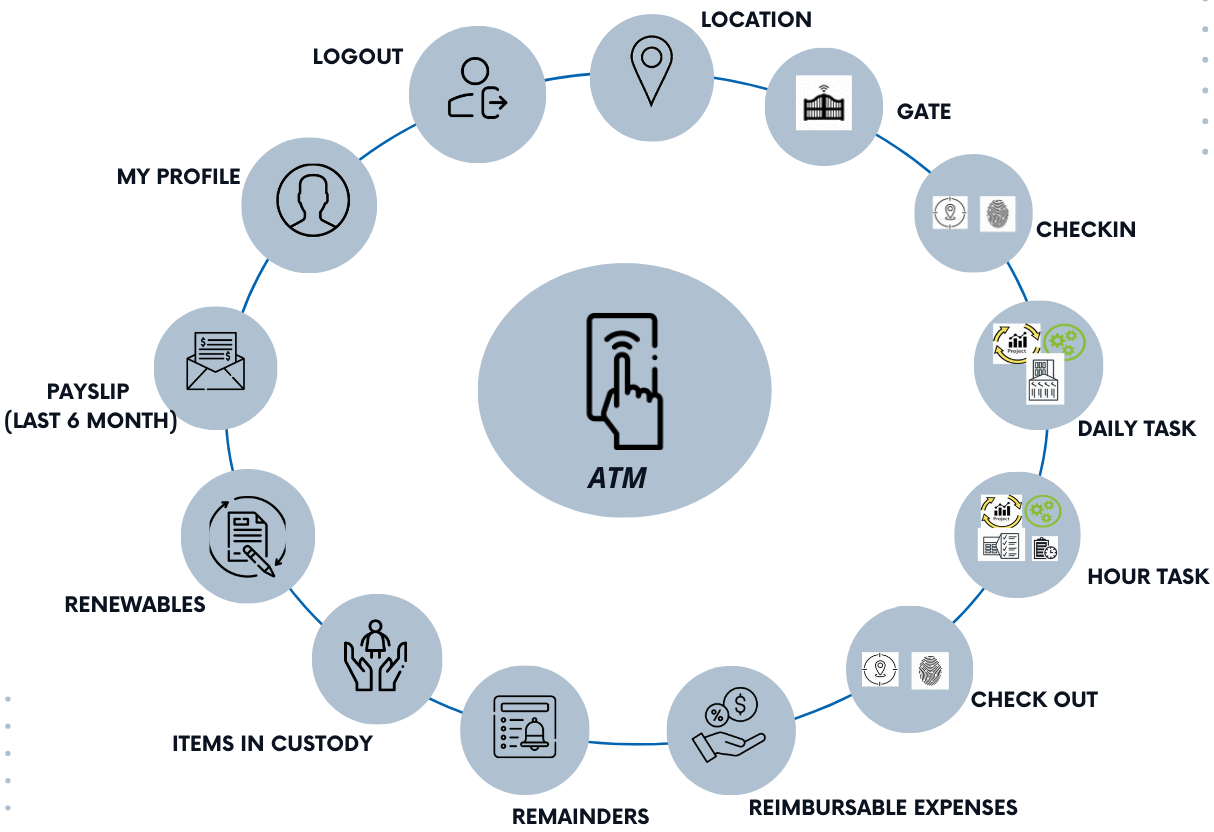
Login
This process verifies a user's identity, allowing them to access their account and use the system's features and functionalities.

Location
Allow users to select their location from a predefined list and maintain a log of when and where they marked their attendance.

Gate
Employees are assigned to specific gates based on their department or location (e.g., First Gate, Building A, Floor 2).

Main Menu
This menu serves as the central hub for navigating the application's features. It offers a user-friendly structure, allowing users to easily access different functionalities of the attendance task manager.
Check In
The Check-In feature allows users to record their attendance at the start of their workday or upon arrival at a specific location. It is crucial for effectively tracking attendance by capturing the user's status, location, and timestamp, while also providing feedback on the action.

Check In Entry
For organizations with multiple locations, check-in entries can capture the user's specific location. Users can indicate their status (e.g., present, late, working remotely), helping managers understand attendance nuances. After entering the details and clicking the save button, the system will prompt the user for biometric (fingerprint) authentication.
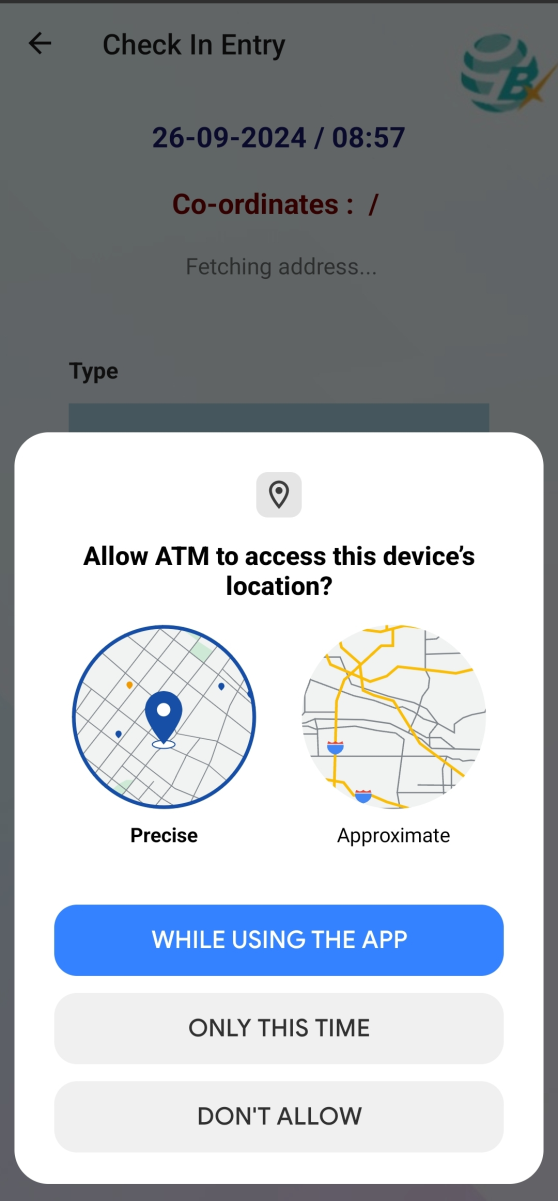
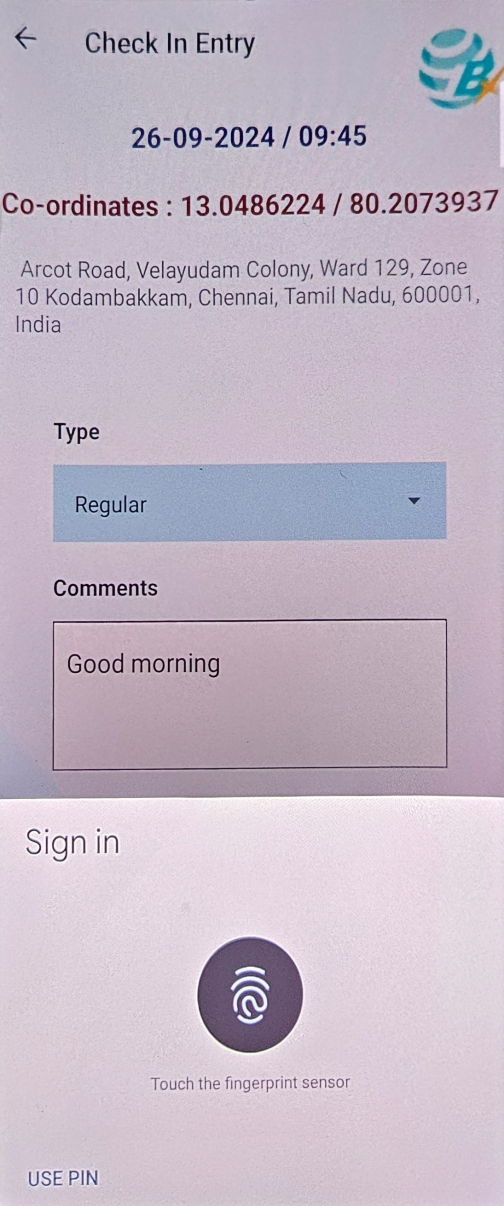
Project:
Check In-> Project
An employee working on a project will have the project name listed in the Project field.

Functions:
Check In -> ESS (Project)-> Function
The Functions field indicates the role assigned to the employee, such as Accounts,
Finance, Development, or HR.

Daily Task
Check In ->ESS->Accounts-> Daily Task
Daily tasks are a list of items that need to be completed, things you have to finish each day.
List View
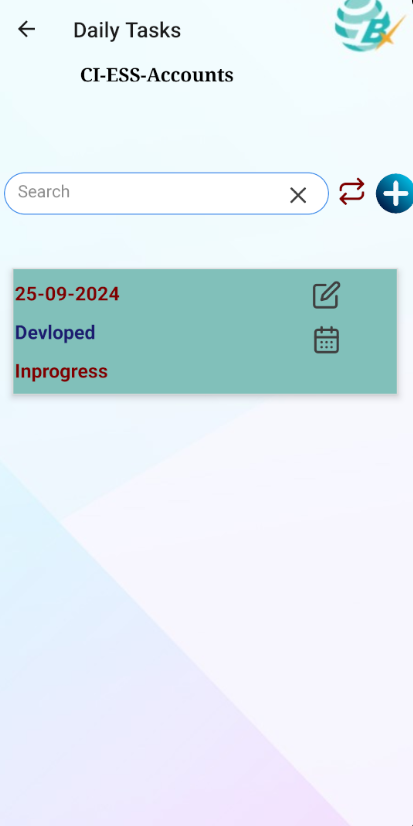
New Task
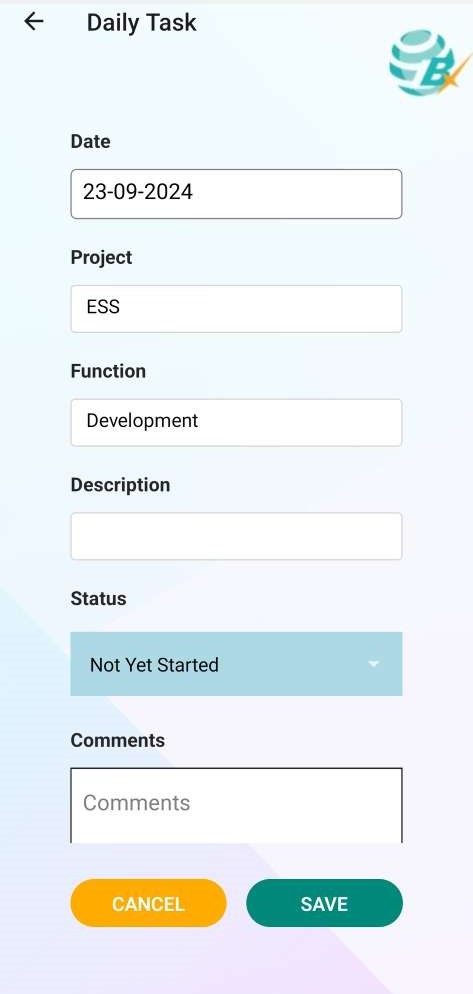
Daily Hour Task
Check In ->ESS->Accounts->Daily Task->Hour Task
A daily hour schedule is a type of planner that helps you stay organized and on track
with your tasks by breaking your day into time blocks. Each time block includes a start time,
duration, and end time, allowing you to dedicate yourself to a specific task or activity during
that period.
List View
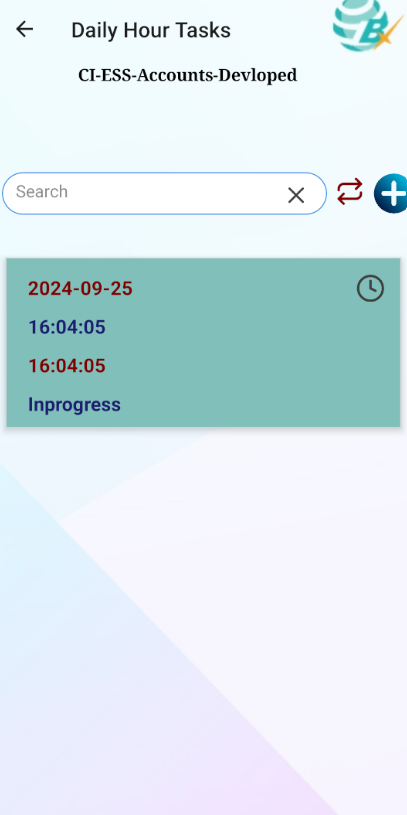
New Task
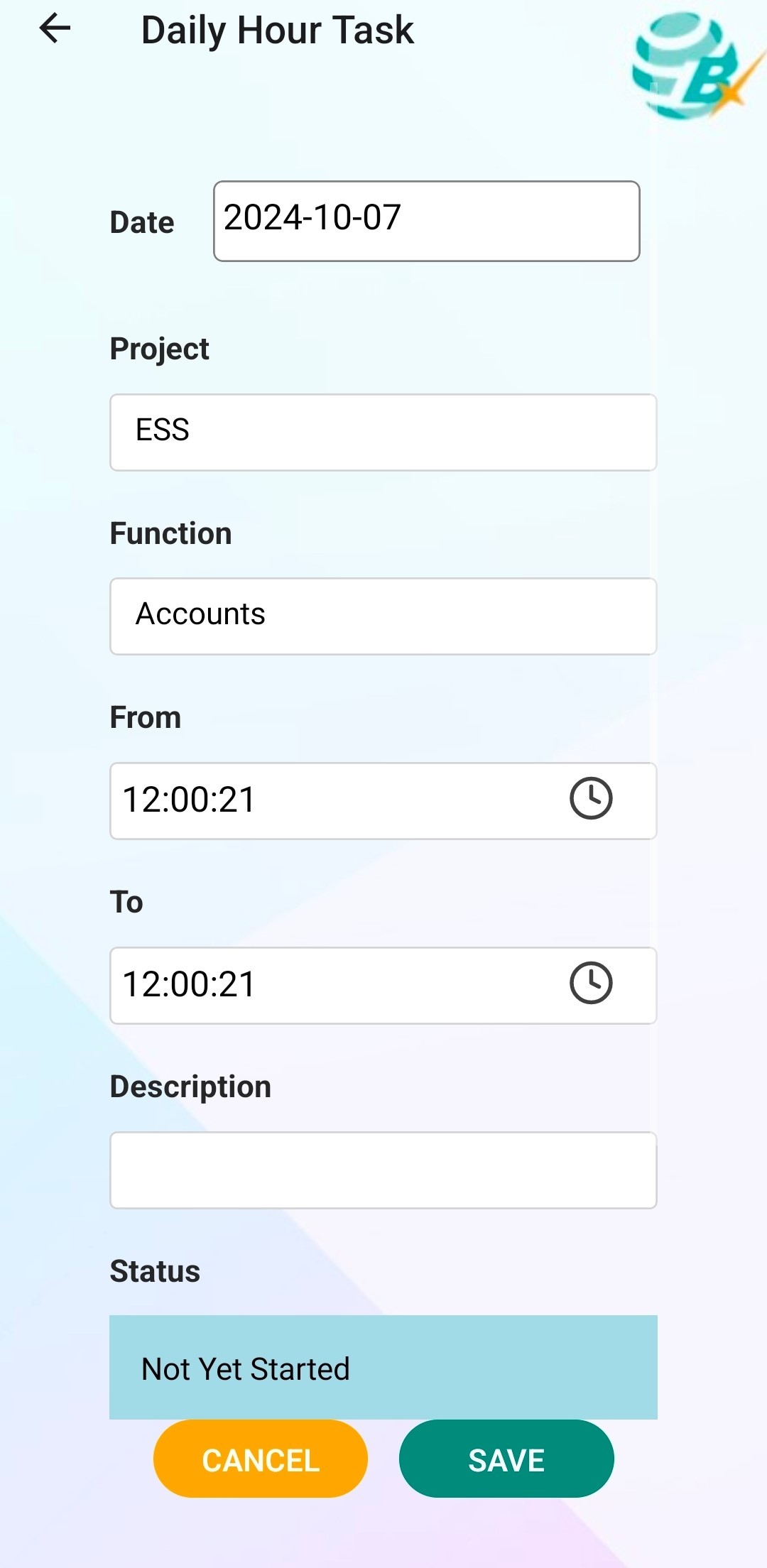
Check Out
Check-out typically refers to the process of logging an employee's departure from work at the end of the day.
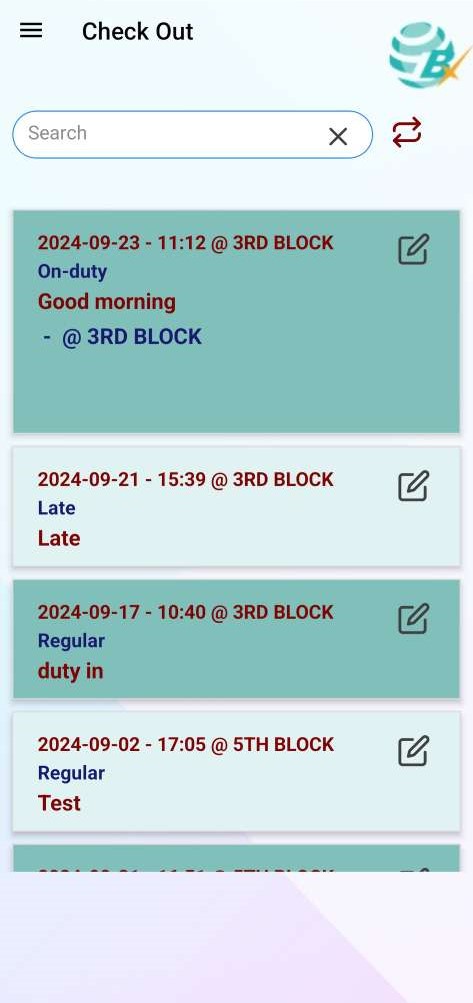
Check Out Entry
Enter the details and click the save button; it will prompt you for biometric (fingerprint) authentication.
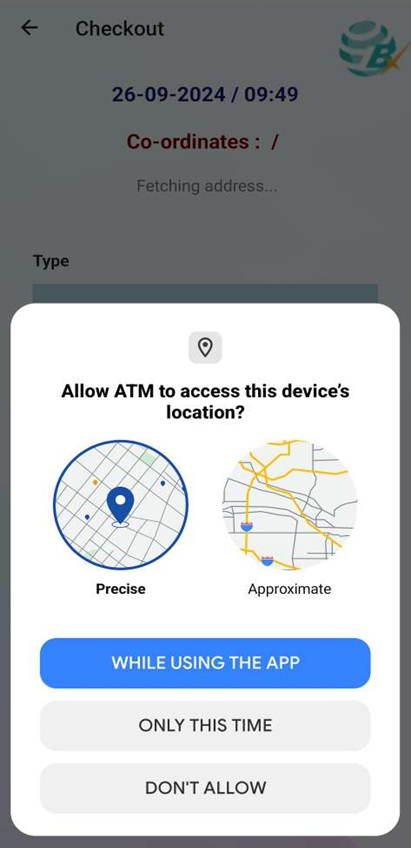
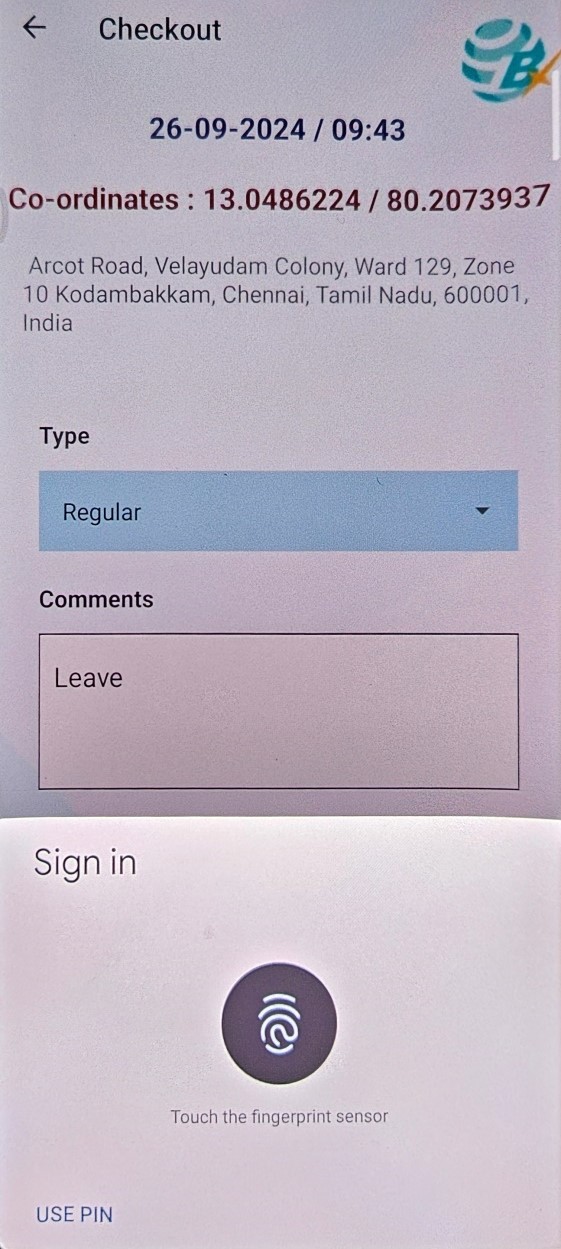
Reimbursable Expenses
Expense entry is the process of tracking and recording expenditures made by employees during their work. This is crucial for managing company finances, ensuring proper reimbursement, and maintaining accurate accounting records.
List View
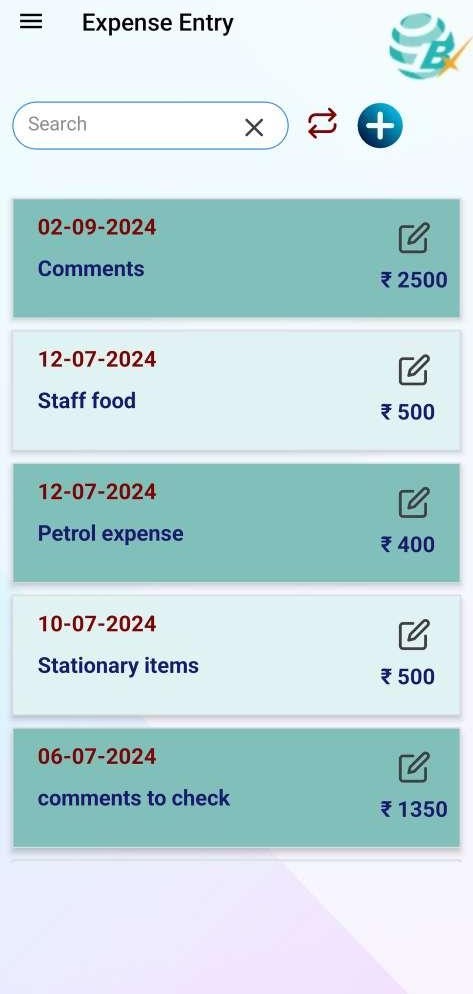
New Record
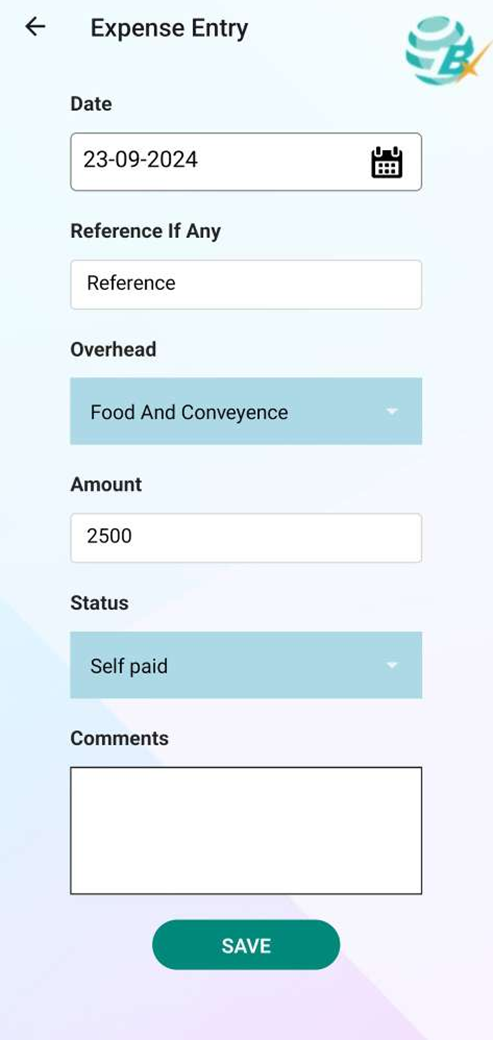
Remainder
A payment reminder is a message sent to a customer to prompt them to pay an outstanding invoice. It helps improve collections, reduce unpaid invoices, streamline cash flow, and initiate conversations about financial difficulties.
List View
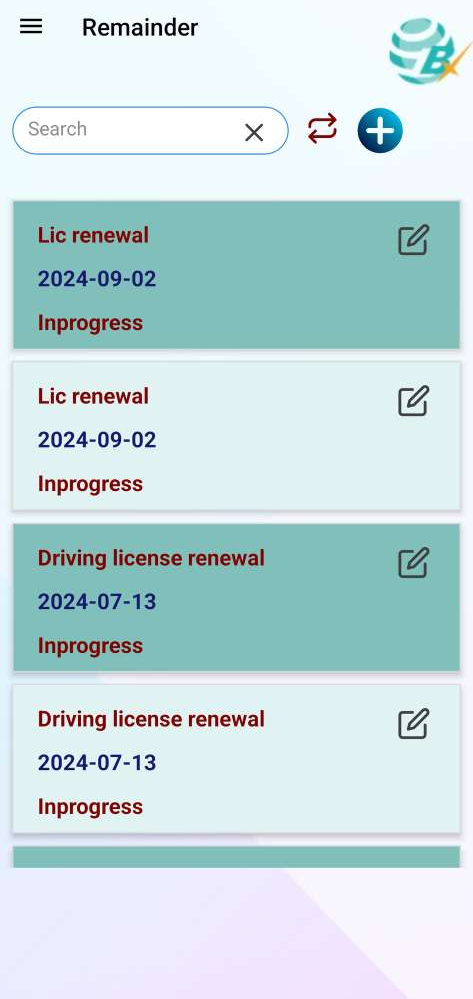
New Remainder
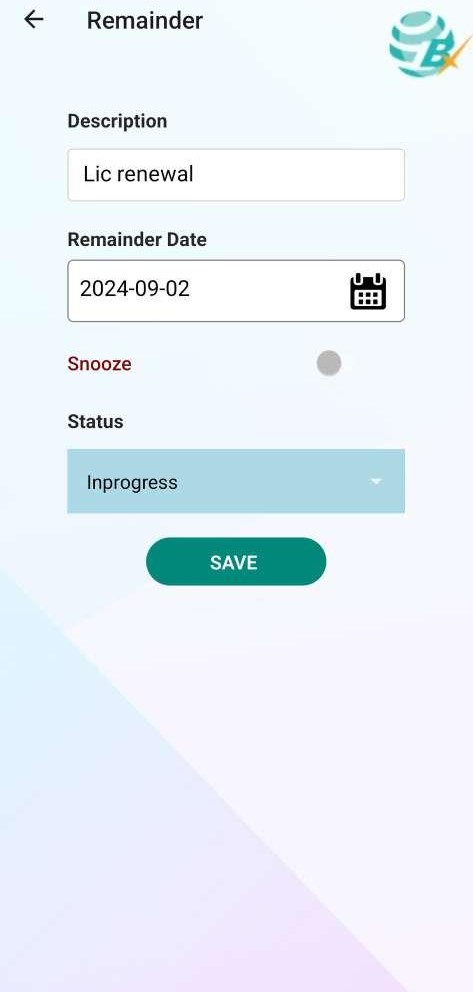
My Profile
Users can view and edit their details on this page. We also provided a fingerprint authentication option.
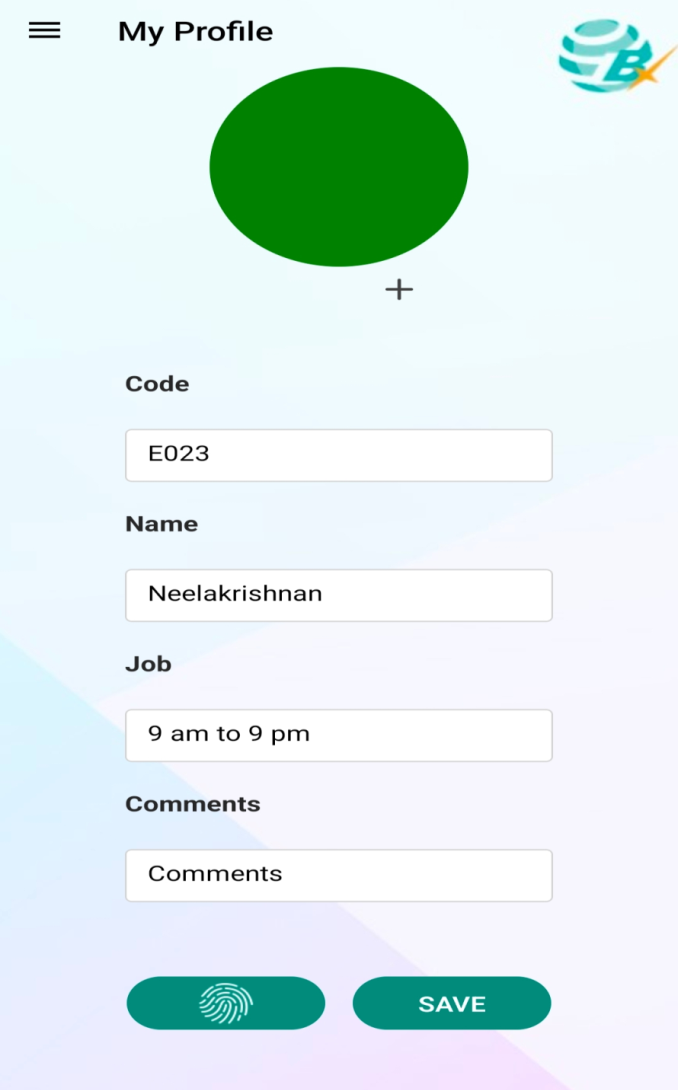
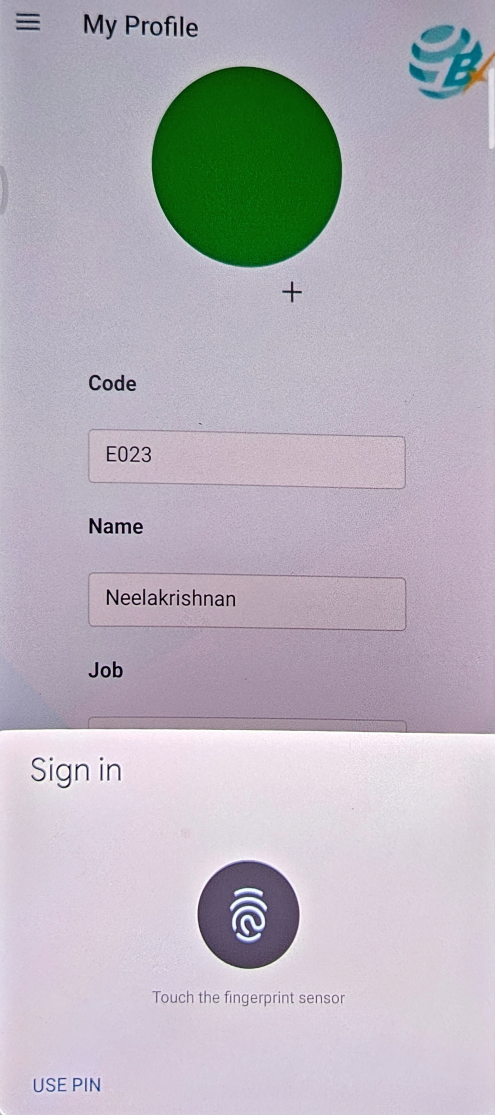
Renewables
It's essential to keep track of expiration dates to ensure timely renewals, especially professional licenses, business permits, Regularly check the renewal dates of insurance policies (like liability, property, and health insurance) to maintain coverage and avoid penalties.
List View
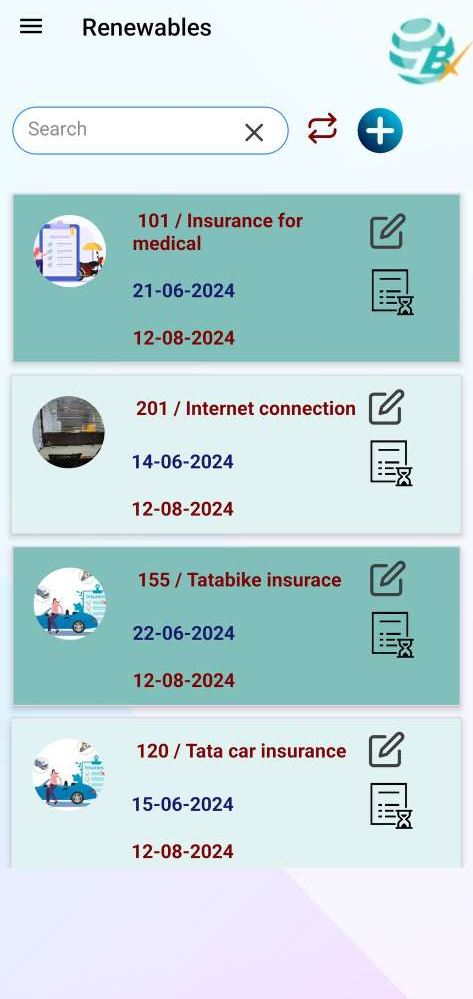
New Record
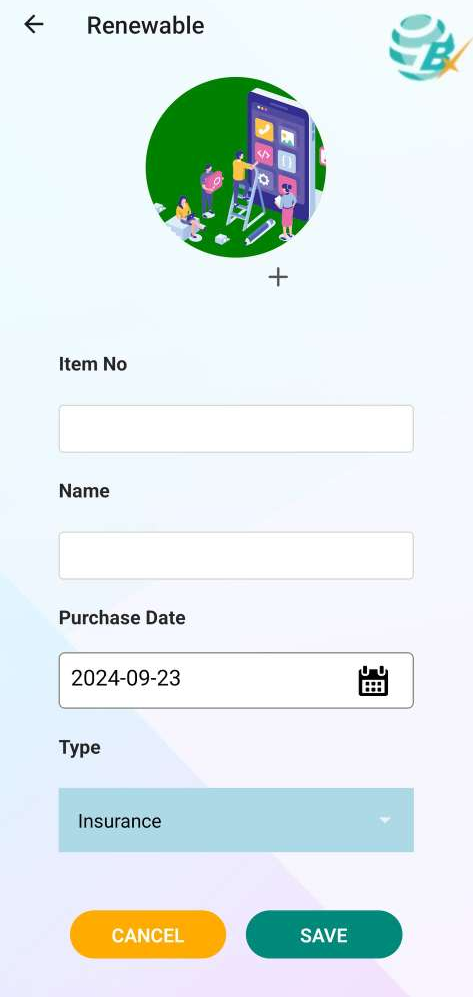
Edit Record
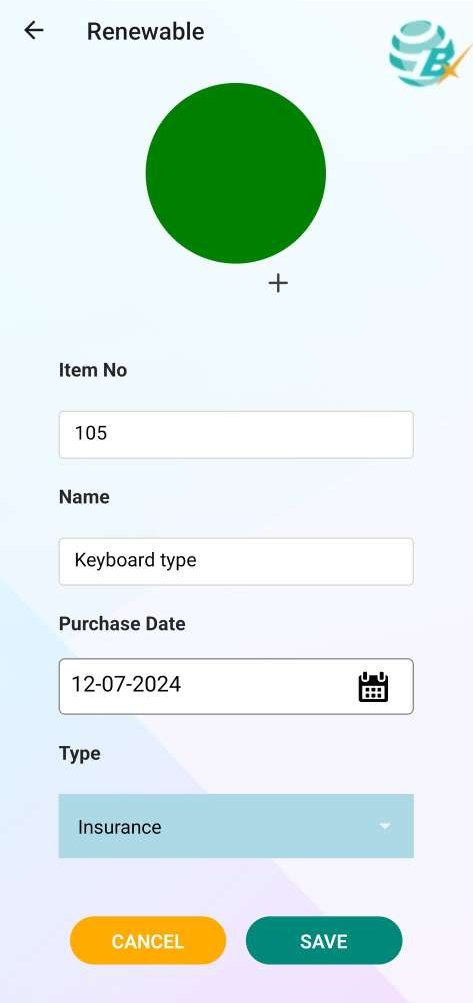
Renewable History
Renewable items have a long history, with roots in ancient trade and maritime practices. As industries grew and risks became more complex, the need for comprehensive renewable items emerged. Regularly checking renewal dates is vital to maintaining continuous coverage, as lapses can expose businesses to significant financial risks and liabilities.
Renewable History
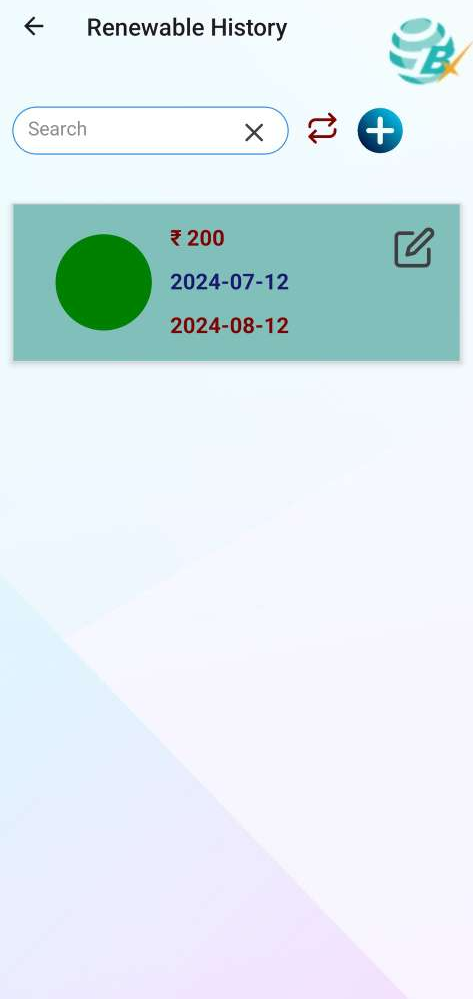
Renewable History Detail
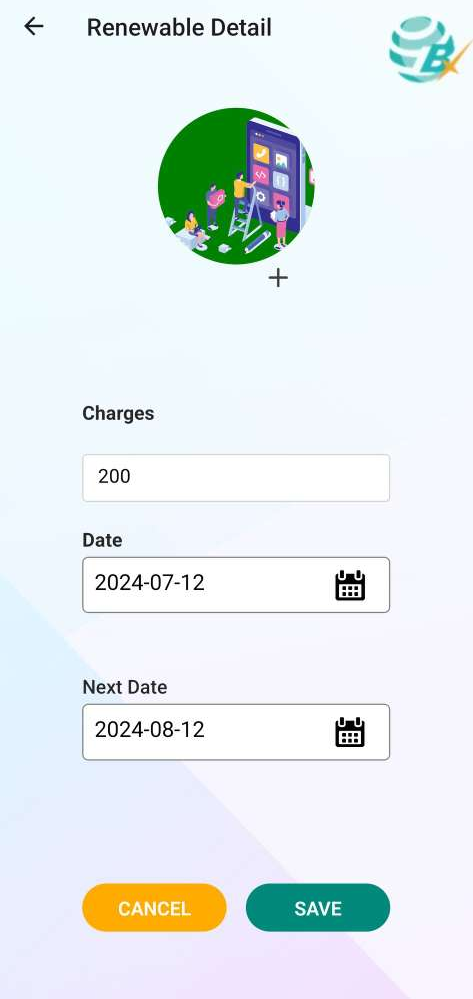
Renewable History New Record
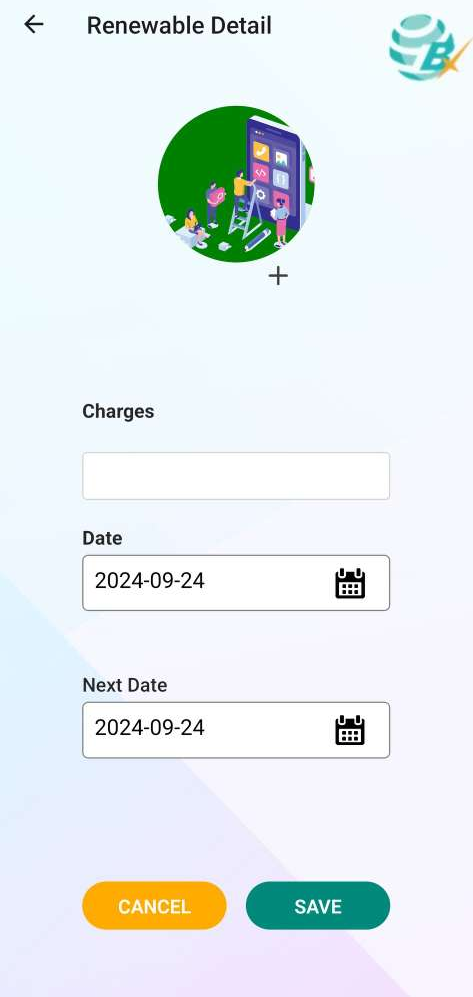
Items In Custody
Refers to physical or digital assets that an organization, individual, or entity holds and manages under its control for safekeeping, protection, or operational purposes.
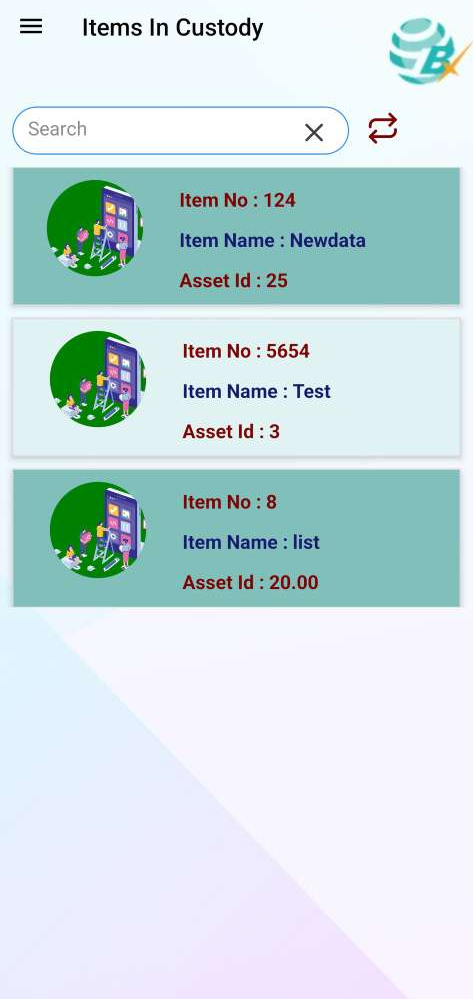
Payslip
Employee retrieves and saves electronic copies of their pay statements for the most recent six-month period from their employer's payroll or HR system. These payslips provide detailed information about the employee’s earnings, deductions, and net pay for each pay period within that time frame.
Payslip - List
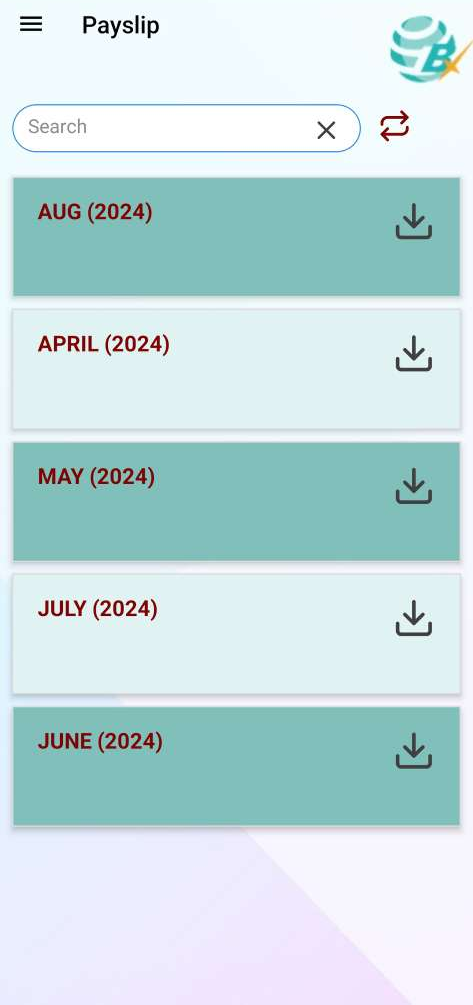
Download - Payslip
